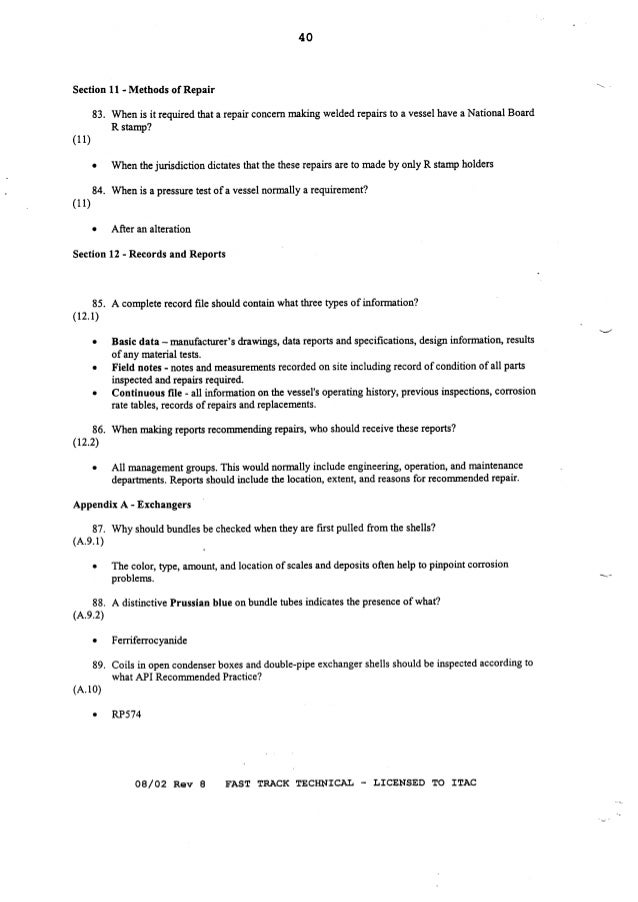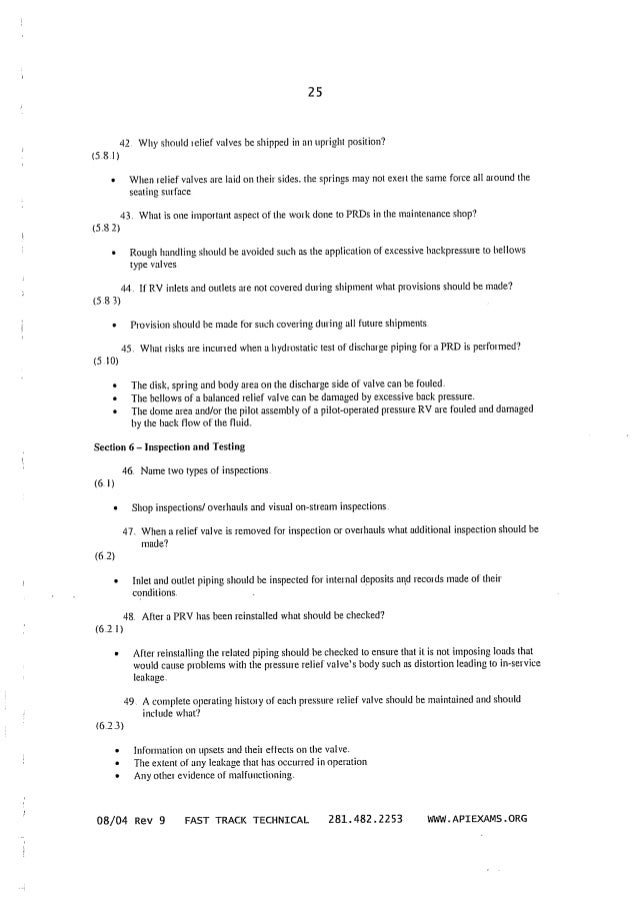Api 510 Standard Free
API 510 Study Material-1 - Free ebook download as PDF File (.pdf), Text File (.txt) or read book online for free.

Free Download Api Standards
General Application Coverage This inspection code covers the in-service inspection, repair, alteration, and rerating activities for pressure vessels and the pressure-relieving devices protecting these vessels. This inspection code applies to all hydrocarbon and chemical process vessels that have been placed in service unless specifically excluded per 1.2.2; but it could also be applied to process vessels in other industries at owner/user discretion. This includes: a) vessels constructed in accordance with an applicable construction code e.g. ASME Boiler and Pressure Vessel Code (ASME Code); b) vessels constructed without a construction code (noncode vessels)—a vessel not fabricated to a recognized construction code and meeting no known recognized standard; c) vessels constructed and approved as jurisdictional special based upon jurisdiction acceptance of particular design, fabrication, inspection, testing, and installation; d) nonstandard vessels—a vessel fabricated to a recognized construction code but has lost its nameplate or stamping.
However, vessels that have been officially retired from service and abandoned in place (i.e. No longer are an asset of record from a financial/accounting standpoint) are no longer covered by this “in-service inspection” code.
The ASME Code and other recognized construction codes are written for new construction; however, most of the technical requirements for design, welding, NDE, and materials can be applied to the inspection, rerating, repair, and alteration of in-service pressure vessels. If for some reason an item that has been placed in service cannot follow the construction code because of its new construction orientation, the requirements for design, material, fabrication, and inspection shall conform to API 510 rather than to the construction code. If in-service vessels are covered by requirements in the construction code and API 510 or if there is a conflict between the two codes, the requirements of API 510 shall take precedence. As an example of the intent of API 510, the phrase “applicable requirements of the construction code” has been used in API 510 instead of the phrase “in accordance with the construction code.”.
The Text book's table of contents follows the API 510 Body of Knowledge that was in effect at the time of its writing. Each area can be studied as a stand alone module for those wh o do not intend to sit for the API 510 exam, but want to obtain a better understanding on a given Code subject. The process found to most effective for general use is to study each subject of interest and complete the quizzes at the end of that module. As regards to calculations, after mastering the given material, refer to the Advanced Material section to increase the depth of understanding. The Adv anced Material covers the calculations required for some actual circumstances that might be encountered in the field.
For those intending to sit for the API 510 examination, some helpful suggestions are contained in the back of the Text bo ok. These include such things as what paragraphs to tab within the ASME Code b ooks, and cross over sub jects from the API to the ASME Codes. At this writing the exam candidate is allowed to use the ASME Code books and the API books on the first portion o f the test only. No reference material is allowed for the second half of the test!


The first portion covers the ASME Codes, Sections VIII Div. 1 Unfired Pressure Vessels, Section IX Welding, and Section V Nondestructive T esting. These questions are typ ical of previous National Board Authorized Inspector exams. These should be used to obtain a feel for the nature of the ASME Code questions. They are not for memorization. The second portion contains questions from the API 510 Code and the Recommended Practices, titled RPI 572 Inspection of Pressure Vessels, RPI 576 Pressure Relieving Devices and Chap ter II -Co nditions Causing Deterioration of Failures. These questions are for memorization if the examination will be taken!